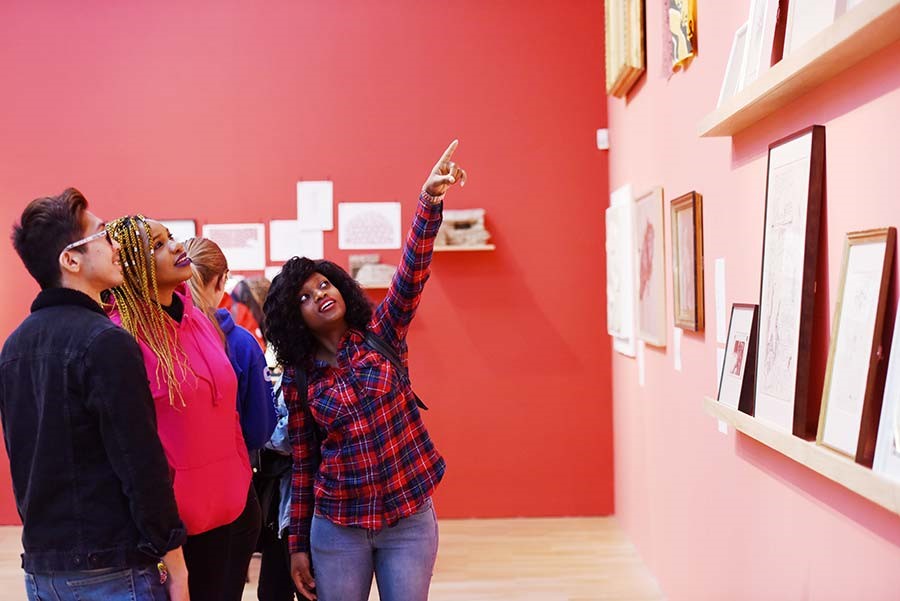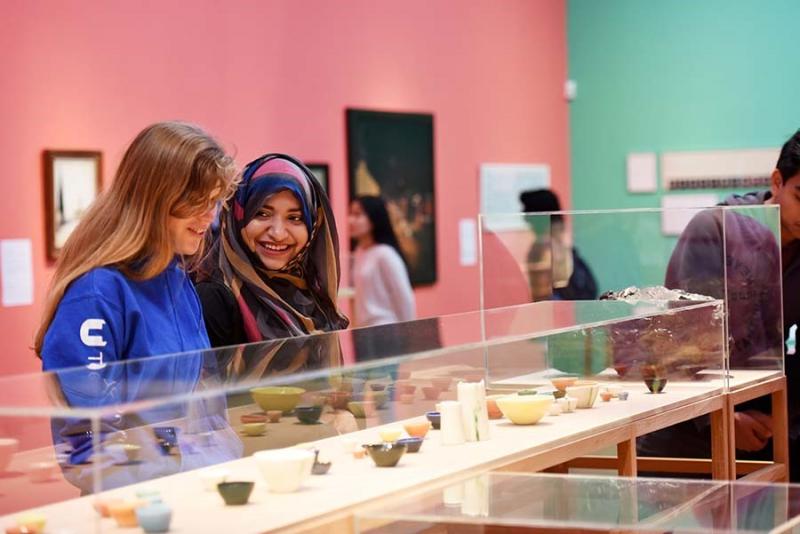
Can apprenticeships address the sector’s lack of diversity?
Apprenticeships offer far more than just a qualification. Charlotte Nicol is convinced they can and will radically change the make-up of the arts sector.
This year the Department for Culture, Media and Sport published information about the socioeconomic groups that make up the creative industries. It’s a disappointing read and depressingly unsurprising.
The ‘more advantaged groups’ make up 91.9% of occupations in the creative economy. This group has experienced 17% employment growth since 2011, compared to 2% growth for the ‘less advantaged group’. In parallel, the Creative Industries Policy and Evidence Centre highlighted that: “There are considerable barriers to entering the sector and strong biases towards specific demographic groups.”
People entering the creative industries are also highly qualified in comparison to other sectors. 72% people working within them hold a degree or postgraduate qualification, compared to 45% for the wider economy. It seems the challenges we face are urgent and can be put down to structural inequalities, inherent in the sector itself.
Transformative training
So, in a sector notoriously difficult to enter, that disproportionately represents those from higher socioeconomic backgrounds, and whose workforce is highly educated, what role can apprenticeships play? And can they address this lack of diversity?
Funded by government at either 95% or 100%, and available at both undergraduate and postgraduate levels, professional apprenticeships also recognise professional experience and practice as part of their entry requirements.
This can be transformative. For example, in my earlier career before I worked in Higher Education, one of my team’s confidence was totally transformed by studying for a master’s level qualification as an apprentice that recognised her professional experience as an entry requirement.
She had never been to university before. But she loved being part of a cohort of like-minded people learning on the job. The biggest take away for me was that, through the apprenticeship scheme, she had the opportunity to gain a qualification she would never have been able to access through any traditional route. Not only that, but it was paid for by the government levy. Ideal.
Continues…
Accessible entry points
Today I work for the organisation that taught her: Teesside University. Teesside is now one of the biggest providers of apprenticeships in the UK, teaching more than 2,000 apprentices a year and with an Ofsted rating of outstanding.
Can apprenticeships offer at least one possible solution to the problem of shaking up a system which determines who gets into positions of power? Who programmes our organisations? And who gets to make creative decisions?
I think so. Apprenticeships create accessible entry points for people who have not been to university, for those who take non-traditional routes into the professions. Banking, finance and law have taken advantage of this. Accenture, HSBC and Santander have all had apprenticeship schemes in place for a number of years. And now we’re seeing the BBC, Channel 4, the National Trust and other large cultural and media organisations joining the movement.
With levy transfers for apprenticeships available, even smaller arts organisations can take advantage of the scheme. To see what qualifications can be gained through an apprenticeship route, have a look at the creative standards available.
At Teesside, we will be building on our successful apprenticeship in Curating and launching a brand new MBA in January 2025 – Cultural and Creative Leader. It recognises that the sector needs leaders who fully understand the creative economy and it supports learners to gain business skills relevant to the cultural sector. Modules cover conflict and care, reflexivity and resilience, and competition and collaboration – all skills in demand in the challenging and ever-changing environment of our sector.
Charlotte Nicol is Associate Dean, Enterprise and Knowledge Exchange in the School of Arts & Creative Industries at Teesside University.
![]() tees.ac.uk/schools/mima/
tees.ac.uk/schools/mima/
![]() @creativearttees | @charnicol3
@creativearttees | @charnicol3

Join the Discussion
You must be logged in to post a comment.